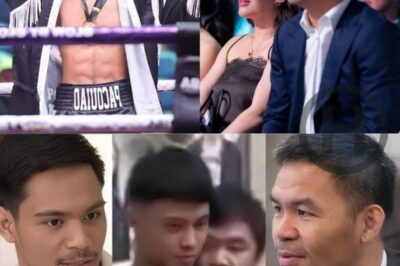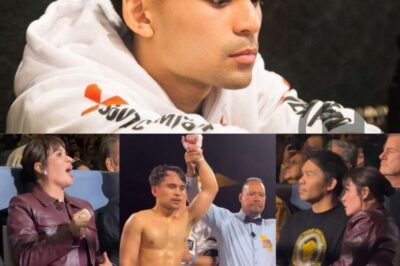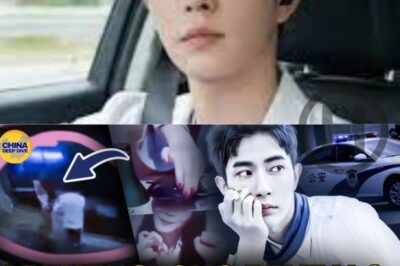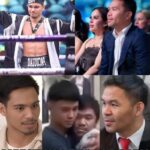The High-Stakes Showdown: Atong Ang Files Complaints Against Julie “Dondon” Patidongan in Tug-of-War Over Missing Sabungeros, Alleged Extortion, and a ₱300M Demand
The sabong (cockfighting) world in the Philippines has become the center of a legal and media storm, as high-profile businessman Charlie “Atong” Ang filed criminal complaints against his former associate Julie “Dondon” Patidongan, who recently came forward with serious allegations. What began as shocking claims of disappearances, alleged crimes, and supposed involvement of powerful figures has escalated into a fierce legal war, with both sides accusing each other of deceit, manipulation, and extortion.
This article offers a comprehensive look into this complex saga—its origin, the personalities involved, and its wider implications for Philippine society.
I. The Allegations That Shook the Sabong Community
Julie “Dondon” Patidongan, once a close and trusted ally of Atong Ang in cockfighting operations, surfaced in 2025 as a whistleblower. He claimed that more than 100 people—linked to electronic sabong—went missing, alleging that Ang and a supposed network were behind the disappearances. Patidongan positioned himself as an insider with intimate knowledge of the operations, describing acts ranging from abductions to targeted killings.
He claimed:
Over 100 sabungeros were abducted and possibly killed.
Police officers received monthly payoffs amounting to millions to protect the operation.
Ang and his close associates orchestrated the disappearances.
A specific location—Taal Lake—was allegedly used to dispose of victims.
The claims were explosive and dominated news cycles. Patidongan presented what he said were “petty cash vouchers,” showing huge payments allegedly made to law enforcement units. He also alleged that the entire system operated with deep coordination between business, security personnel, and compromised authorities.
II. Atong Ang Responds with Legal Firepower
In an assertive response, Charlie “Atong” Ang took the offensive. On July 3, 2025, he filed five criminal complaints against Patidongan and an associate named Alan “Brown” Bantiles. The legal action was filed with the Mandaluyong City Prosecutor’s Office, with Ang’s camp describing Patidongan not as a whistleblower but as a manipulator attempting to extort money under the guise of exposing wrongdoing.
The charges included:
Grave threats
Grave coercion
Incriminating innocent persons
Attempted robbery with violence or intimidation
Grave slander
Represented by prominent lawyer Atty. Lorna Kapunan, Ang emphasized that the real motivation behind the allegations was money. He claimed that Patidongan demanded ₱300 million in exchange for silence. When Ang refused, Patidongan allegedly fabricated stories, presented them to the media, and turned public opinion against Ang.
III. The ₱300 Million: Extortion or Bribery?
The figure ₱300 million has become the centerpiece of this confrontation. Both camps admit the number exists—but disagree completely on its origin and intention.
Ang claims Patidongan tried to extort the amount to prevent him from being implicated in the sabungero disappearances. He says Patidongan demanded this sum in a series of conversations and even prepared draft affidavits in anticipation of the pay-off.
Patidongan tells a different story. He says the ₱300 million offer came from Ang’s camp. According to him, Ang attempted to silence him by offering money so he would recant his statements and leave the country. Patidongan insists he refused the offer and went public instead.
This critical disagreement forms the foundation of the legal battle: is Patidongan a whistleblower risking his life to tell the truth—or is he a former insider attempting a high-stakes extortion ploy?
IV. The Role of Evidence
One of the turning points in the controversy has been the presentation of what both sides claim is “evidence.”
Patidongan’s Documents
Patidongan’s team presented alleged petty cash vouchers showing payments—some in excess of ₱2 million per month—to specific police units. He claims the vouchers were routine evidence of protection payments tied to sabong operations and, by extension, to the abduction of players.
He also provided sworn testimony to media outlets and the authorities. This testimony details names, locations, and roles of people allegedly involved.
Ang’s Legal Strategy
In contrast, Ang’s legal counsel claims these documents are fake, fabricated, or taken out of context. They argue that Patidongan’s own criminal history—including allegations of violence and robbery in previous incidents—renders him unreliable.
Atty. Kapunan highlighted that the evidence Patidongan presented lacks authentication and that true investigative bodies must assess its validity.
V. A Relationship Gone Sour
The battle is deeply personal. According to Ang, Patidongan was like family. He served as a security chief in Ang’s operations for many years. This relationship, based on loyalty and trust, turned sour—allegedly after Patidongan lost influence within Ang’s network.
From Ang’s perspective, Patidongan’s current role as an accuser is an act of betrayal and vengeance, driven by greed and desperation.
Meanwhile, Patidongan paints himself as someone who reached his limit—no longer willing to be complicit in what he describes as unspeakable acts. His willingness to go public, despite legal risks, is his attempt at justice, he says.
VI. Who Are the Players?
This story involves a cast of prominent and controversial figures:
Charlie “Atong” Ang – Businessman, central figure in cockfighting, now accused of being behind the sabungero disappearances.
Julie “Dondon” Patidongan – Former security chief, now whistleblower. Facing legal countercharges from Ang.
Alan “Brown” Bantiles – Allegedly an accomplice of Patidongan, named in the same legal complaint.
Atty. Lorna Kapunan – Veteran legal counsel representing Ang, aggressively defending her client and discrediting the accusations.
Unnamed Law Enforcement Officials – Referenced in alleged vouchers, they are being investigated but not publicly named.
VII. Legal Consequences and Public Perception
This high-profile clash is not just about two men. Its outcome could influence public trust in law enforcement, the integrity of whistleblowing, and how the judiciary handles complex corruption cases.
If Ang is vindicated, Patidongan may face criminal conviction for extortion, slander, and coercion. It could damage public perception of whistleblowers and validate the claims of those who say many whistleblowers act out of self-interest.
If Patidongan’s claims are upheld, it could lead to further investigations, the prosecution of public officials, and serious reforms in the cockfighting industry.
Public opinion is deeply divided:
Some see Patidongan as a brave figure exposing dark secrets.
Others believe he is acting to save himself and has fabricated a narrative for media attention and possible monetary gain.
VIII. Media’s Role and Coverage Ethics
The media has played a central role in elevating this issue to the national stage. Television programs, online news outlets, and social media accounts have dissected every statement, press conference, and court filing.
Questions are now being raised about media ethics—especially when unverified documents and testimonies are presented to the public before court review. Some believe it fuels trial by publicity, which can undermine due process. Others argue that media attention is what pushes real accountability forward, especially when public officials may be involved.
IX. Implications for the Sabong Industry
Sabong, a traditional part of Filipino culture, has expanded into the digital age through online betting and e-sabong. While once regulated and legalized under strict rules, it became controversial due to gambling addiction, criminal infiltration, and now, reports of disappearances.
This case brings into question whether private sabong operators can be trusted to self-regulate. The industry, already under scrutiny, may face more regulation—or even calls for abolition—depending on how the legal battles unfold.
X. What Happens Next?
Key developments expected in the coming weeks include:
Preliminary investigations by the prosecutor to determine if full trials are warranted.
Forensic examination of alleged vouchers and communications.
Court hearings, where both sides will present sworn testimony.
Possibility of new witnesses coming forward.
Further charges—if either side presents new material evidence.
XI. Final Thoughts
This is not just a legal battle—it is a moral, cultural, and political drama unfolding in real time. The conflict between Atong Ang and Julie Patidongan may determine the fate of not only their reputations but also the credibility of the sabong industry, law enforcement, and Philippine justice.
The case challenges institutions and public trust. It asks whether whistleblowers can safely come forward—or whether whistleblowing itself is becoming weaponized in personal feuds. Either way, the whole country is watching closely.
📰 Related Articles and Sources
“Atong Ang camp denies Patidongan tale, says he tried to extort ₱300 million” – GMA News
“‘Sabungeros’ case: Atong Ang files criminal raps, says witness ‘Totoy’ tried to extort ₱300M” – The Philippine Star
“Atong sues acc
user: We are not criminals” – The Philippine Star
“Ang: Patidongan asked for ₱300M so I won’t be dragged into sabungero case” – GMA News
“Police personnel receive up to ₱2M monthly payola from Atong Ang, says whistleblower” – GMA News
News
A Heartfelt Promise: Sarah Geronimo and Matteo Guidicelli Deliver a Special Announcement to the People They Quietly Helped (NH)
“A Heartfelt Promise: Sarah Geronimo and Matteo Guidicelli Deliver a Special Announcement to the People They Quietly Helped” December 1,…
A Celebration of Love and Legacy: The Grand, Emotion-Filled Wedding of Alyana Asistio and Raymond Mendoza (NH)
“A Celebration of Love and Legacy: The Grand, Emotion-Filled Wedding of Alyana Asistio and Raymond Mendoza” December 1, 2025 Introduction…
Eman Bacosa Stands Firm: Manny Pacquiao is No Negligent Father (NH)
“Eman Bacosa Stands Firm: Manny Pacquiao is No Negligent Father” December 1, 2025 Introduction In the public eye, Manny Pacquiao…
Shockwaves in Showbiz: Shuvee Etrata ‘Claims’ Eman Pacquiao From Jillian Ward — A Love Triangle That Redefined the Spotlight (NH)
“Shockwaves in Showbiz: Shuvee Etrata ‘Claims’ Eman Pacquiao From Jillian Ward — A Love Triangle That Redefined the Spotlight” December…
Heart on the Ropes: Jinkee Pacquiao Breaks Down as Son Jimuel Steps Into the Ring (NH)
“Heart on the Ropes: Jinkee Pacquiao Breaks Down as Son Jimuel Steps Into the Ring” December 1, 2025 Introduction…
Yu Menglong’s Soul: “Living Hell” — Tianyu Entertainment Contract Termination Scandal Exposed (NH)
🔥 Yu Menglong’s Soul: “Living Hell” — Tianyu Entertainment Contract Termination Scandal Exposed 🔴 Publication Date: December 1, 2025…
End of content
No more pages to load












